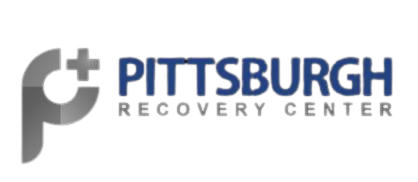Addiction is a complex and devastating disease that affects not just the individual struggling with substance abuse, but also their loved ones. It can disrupt family life, cause financial troubles, and lead to severe physical and mental health issues. Recognizing the signs of addiction is the first step to seeking help, but making the decision to intervene can be a daunting process. This is where Pittsburgh Recovery Centers come in, providing expert addiction intervention services that can help set the stage for lasting recovery.

Addiction, whether it involves alcohol, prescription medications, or illicit drugs, is a complex disease that profoundly impacts the individual. It is characterized by an inability to control substance use despite the harmful consequences that arise. Addiction fundamentally alters the brain’s chemistry, leading to intense cravings, increased tolerance, and challenging withdrawal symptoms, all of which make quitting an incredibly difficult task.
As addiction progresses, it can result in severe health complications, including liver damage, heart disease, respiratory issues, and various mental health disorders. These physical and psychological effects often lead to a deterioration in personal relationships and social connections, isolating the individual further. The impact of addiction also extends to occupational and academic performance, leading to a significant decline in productivity and achievement. Additionally, addiction can result in legal problems and financial instability, further complicating the individual’s life and making recovery an even more urgent and necessary pursuit.
The reverberations of addiction extend beyond the individual, profoundly affecting family members and friends. It’s common for loved ones to experience:
At Pittsburgh Recovery Centers, we recognize that addiction is a complex and multifaceted issue that affects not only the individual but also their loved ones. The far-reaching impact of addiction can strain relationships, disrupt families, and create an environment of despair. Understanding the emotional and psychological toll that addiction takes on everyone involved, our mission is to offer compassionate and comprehensive intervention services designed to address these challenges. We believe that every person struggling with addiction deserves a chance at recovery, and we are dedicated to providing the support and resources needed to begin that journey.
Our approach to intervention is rooted in evidence-based practices and is delivered by a professional team with extensive experience in addiction treatment. We guide families through the often daunting intervention process with care and expertise, helping them to confront the situation with empathy and resolve. Our goal is to offer hope and a clear path forward, empowering both the individual and their family to take the necessary steps towards effective treatment and lasting recovery. By creating a supportive and structured environment, we help bridge the gap between recognizing the problem and taking actionable steps to overcome it, ensuring that those affected by addiction have the best possible chance at reclaiming their lives.

Partial hospitalization is our highest level of care. Partial Hospitalization is a structured Substance Abuse treatment program that runs for 5 days a week 4-6 hours a day.

In IOP, you attend therapy, learn to maintain sobriety, and develop a supportive peer network to begin transitioning into a lifelong recovery program. IOP is 3-5 days a week, 3 hours a day.

Outpatient therapy is an ideal option for people who are motivated to maintain abstinence. Outpatient is 1-2 days a week, 2-3 hours a day.
Pittsburgh Recovery Center offers a comprehensive range of addiction treatment services designed to address the physical, psychological, and emotional aspects of addiction. These services include:
Detoxification is often the first step in the addiction treatment process. Pittsburgh Recovery Center provides a safe and comfortable environment for individuals to go through the detoxification process under the supervision of experienced medical professionals. With 24/7 monitoring and personalized care, they ensure that clients can safely manage the physical and psychological symptoms of withdrawal.
Inpatient rehabilitation programs at Pittsburgh Recovery Center offer a structured and supportive environment for individuals to focus on their recovery. These programs typically last for 30, 60, or 90 days and provide a comprehensive range of evidence-based therapies, including individual counseling, group therapy, family therapy, and holistic approaches. Inpatient rehabilitation allows individuals to immerse themselves in a recovery-focused community, away from triggers and temptations, and develop the necessary tools and coping skills for long-term sobriety.
Pittsburgh Recovery Center offers intensive outpatient programs (IOPs) for individuals who need more structured support but do not require 24/7 residential care. IOPs provide a flexible treatment schedule, allowing individuals to attend therapy sessions during the day and return home in the evenings. These programs offer a combination of individual counseling, group therapy, and educational sessions, providing a higher level of care than traditional outpatient programs.
For those who need flexibility in their treatment schedule or have completed an inpatient program, Pittsburgh Recovery Center offers outpatient programs. These programs provide continued support and therapy while allowing individuals to maintain their daily responsibilities. Outpatient programs offer a range of therapy options, including individual counseling, group therapy, and family therapy, and are designed to provide ongoing guidance and support as individuals transition back into their everyday lives.
Many individuals struggling with addiction also face co-occurring mental health disorders. Pittsburgh Recovery Center offers dual diagnosis treatment, which addresses both addiction and mental health issues simultaneously. By treating both conditions concurrently, they provide individuals with a comprehensive approach to recovery and help them achieve lasting mental and emotional well-being.
Recovery is a lifelong journey, and Pittsburgh Recovery Center recognizes the importance of ongoing support beyond the initial treatment phase. They provide comprehensive aftercare planning, including relapse prevention strategies, sober living referrals, and community resources, to ensure that individuals have the support they need as they transition back into their everyday lives. In addition, Pittsburgh Recovery Center offers ongoing alumni support programs, including counseling sessions, support group meetings, and social events, to foster lasting connections and continued growth in recovery.
An intervention is a carefully structured and well-planned event aimed at helping an individual who is struggling with addiction recognize the severity of their situation and understand the necessity of seeking treatment. This process involves the coordinated efforts of family members, close friends, and sometimes colleagues, all of whom come together with the shared goal of encouraging the individual to take the first step toward recovery. The intervention is typically guided by a professional interventionist who has expertise in addiction and recovery, ensuring that the conversation is conducted in a constructive, non-judgmental, and supportive manner.
The primary objective of an intervention is to break through the individual’s denial, which is often a significant barrier to acknowledging the problem. Denial can prevent the person from seeing the reality of their addiction, leading to continued substance abuse and worsening consequences. During the intervention, loved ones share their observations and concerns, highlighting specific instances where the addiction has caused harm. This process promotes self-awareness, helping the individual understand the impact of their behavior on themselves and those around them.
In addition to raising awareness, an intervention offers a clear and actionable plan for treatment and recovery. The interventionist, alongside the family, presents the individual with a pre-arranged treatment option, whether it be inpatient rehab, outpatient therapy, or another appropriate program. This plan is designed to provide a seamless transition into care, reducing the likelihood of hesitation or refusal.
Another critical aspect of an intervention is demonstrating unified support and concern from loved ones. The presence of multiple people who care deeply about the individual helps reinforce the message that they are not alone in this journey. It shows that their well-being is a priority and that they have a network of support ready to assist them in overcoming their addiction.
Lastly, an intervention serves to reduce enabling behaviors and establish healthy boundaries. Often, family members or friends may unknowingly enable the addiction by providing financial support, making excuses for the individual’s behavior, or shielding them from the consequences of their actions. An intervention helps to identify and address these enabling behaviors, encouraging loved ones to set firm boundaries that support the individual’s recovery rather than perpetuating the cycle of addiction.
In summary, an intervention is a powerful tool in the fight against addiction. It combines empathy with structure, offering a clear path forward and rallying the support of those who care most about the individual’s health and future. Through this process, the person struggling with addiction is given the opportunity to confront their illness, accept help, and begin the journey toward a healthier, more fulfilling life.
Interventions can serve as a critical turning point for individuals struggling with addiction, offering numerous benefits that can set the stage for successful recovery. One of the primary advantages of an intervention is that it provides a structured and safe environment where the issue of addiction can be addressed openly and honestly. Often, addiction is shrouded in secrecy and denial, making it difficult for the individual and their loved ones to confront the problem head-on. An intervention breaks down these barriers, allowing for a candid discussion about the effects of substance abuse and the urgent need for treatment.
Another significant benefit of an intervention is the mobilization of a support system. Addiction can be an isolating experience, leaving individuals feeling alone and disconnected from those who care about them. By bringing together family members, friends, and sometimes colleagues, an intervention demonstrates to the individual that they are not alone in their struggle. This collective show of support can be incredibly encouraging, providing the individual with the emotional backing and accountability needed to take the first steps toward recovery.
A well-planned intervention also presents the individual with a cohesive treatment plan, offering a clear path forward. This plan typically includes options for detoxification, rehabilitation, and aftercare, ensuring that the individual has access to comprehensive care tailored to their specific needs. By having these arrangements in place beforehand, the intervention removes the uncertainty and hesitation that might otherwise prevent the person from seeking help. The immediate availability of a treatment plan increases the likelihood that the individual will take action and begin their recovery journey without delay.
Encouraging the individual to take immediate action is another vital benefit of an intervention. The structured and supportive nature of the intervention makes it harder for the person to ignore or postpone the need for treatment. Faced with the unified concern and care of their loved ones, the individual is often more motivated to accept help and commit to the recovery process. This sense of urgency is crucial in addressing addiction before it leads to further physical, emotional, or legal consequences.
Finally, an intervention can alleviate some of the emotional burden that family members and friends carry. Watching a loved one struggle with addiction is a deeply painful experience, often accompanied by feelings of helplessness, guilt, and frustration. An intervention offers a proactive way to address these emotions by giving loved ones a constructive role in the recovery process. It allows them to express their concerns, set healthy boundaries, and support their loved one in a meaningful way, all while contributing to a positive outcome.
In summary, the benefits of an intervention are far-reaching, providing a structured opportunity for open dialogue, mobilizing a support network, presenting a clear treatment plan, encouraging immediate action, and relieving emotional burdens. Through these collective efforts, an intervention can be the catalyst for lasting change, guiding the individual toward a healthier, more fulfilling life free from addiction.
We are an in-network provider for Highmark, Blue Cross Blue Shield of Pennslyvania, UPMC, and Geisinger. We accept most PPO & POS insurance plans.










Our intervention process begins with an initial consultation to understand the unique circumstances of each case. During this consultation, our experienced interventionists will:

Successful interventions require meticulous preparation. Our team will work closely with the family to:
On the day of the intervention, our professional interventionist will guide the process to maintain structure and emotional safety. The steps typically include:
The journey doesn’t end with the intervention. At Pittsburgh Recovery Centers, we provide ongoing support to ensure a smooth transition into treatment and maintain long-term recovery. Our post-intervention services include:
Addiction is a daunting challenge, but you don’t have to face it alone. At Pittsburgh Recovery Centers, we’re dedicated to providing quality intervention services that can make a life-changing difference. If you or a loved one is struggling with substance abuse, don’t wait. Reach out today to speak with our admissions team and take the first step towards recovery.
Contact Pittsburgh Recovery Centers now for immediate help with addiction interventions. Together, we can create a brighter, healthier future.
